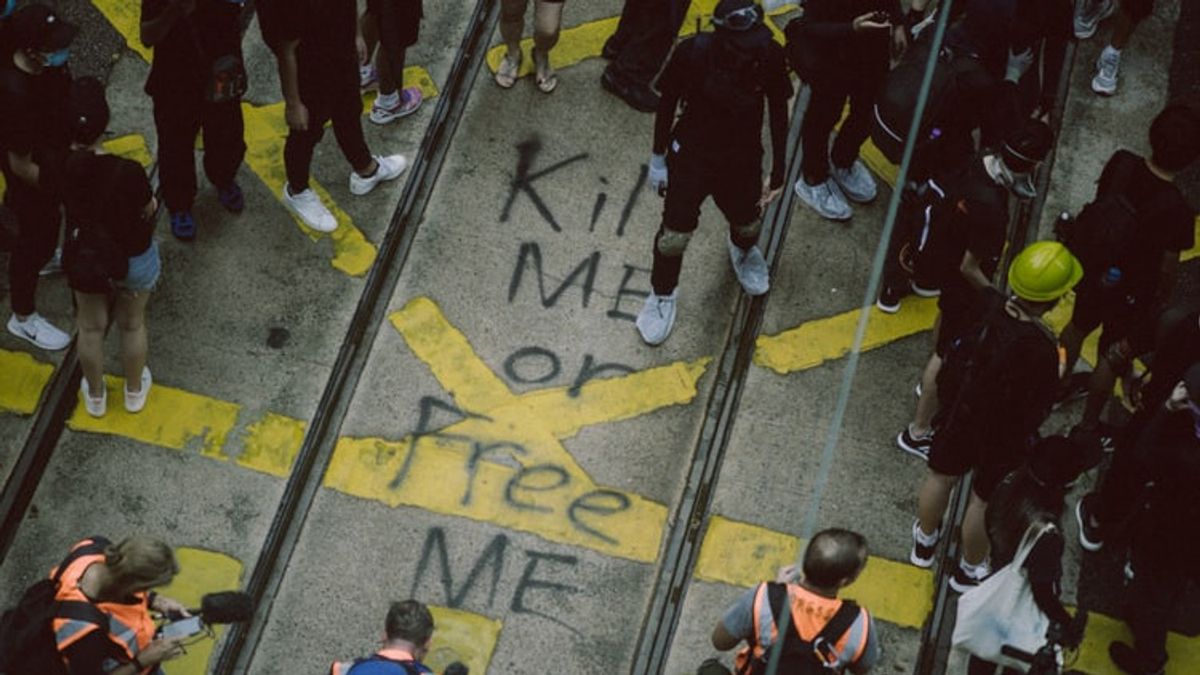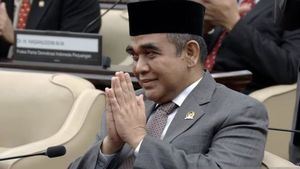JAKARTA - Sweden supports France and Germany's efforts to react strongly to the National Security Law (UU) implemented by China in Hong Kong. Previously, Denmark and the Netherlands had also pushed the European Union to consider precautions against China.
Like many western countries, the European Union has criticized the Chinese parliament's decision to issue a National Security Act against the former British colony. Despite the international protests, it is unclear what threat they will carry out.
"There are proposals for specific measures proposed by Germany and France that I will support because we need to react to what is happening in Hong Kong," Swedish Foreign Minister Anne Linde said before a rare private meeting with EU colleagues in Brussels.
EU Commission President Ursula von der Leyen last month warned of "very negative consequences" for China if it limits guarantees of freedom in Hong Kong. EU officials also declined to specify what steps would be taken, but two EU diplomats said they did not impose formal sanctions on China, the bloc's second biggest trading partner.
In exchange, they require an extension of the EU's export ban on equipment that can be used for repressive torture, such as barbed sticks or rubber bullets. They will also give Hong Kong activists long-term refugee status in the bloc and support more opportunities for Hong Kong students to study in Europe.
Swedish and Chinese relationsSweden is trying to free its citizen, Gui Minhai, who is behind bars in China. A Chinese court sentenced Gui Minhai to ten years in prison for supporting intelligence from abroad. This deepened diplomatic tensions when Sweden demanded that China release him.
Gui Minhai, a bookseller previously based in Hong Kong, sells books critical of China's political leadership. He was detained by mainland Chinese police in 2018. He was arrested with Swedish diplomats on a train bound for Beijing.
Because Gui was found guilty, he would be stripped of political rights for five years in addition to his term of detention. The brief statement said Gui pleaded guilty and would not appeal her case.
Gui Minhai is one of five people who disappeared in 2015. The case rippled across Hong Kong, fueling concerns about China's growing grip over the publishing industry. Yet Hong Kong has long enjoyed the freedoms granted under the framework of "one country, two systems."
Authorities initially said Gui had been detained for carrying out illegal business operations. "We all know that even if the government changes its demands, the real reason for Gui is that he has published books critical of China's leadership," said Yaqiu Wang, China researcher for Human Rights Watch.
The English, Chinese, Japanese, Arabic, and French versions are automatically generated by the AI. So there may still be inaccuracies in translating, please always see Indonesian as our main language. (system supported by DigitalSiber.id)













